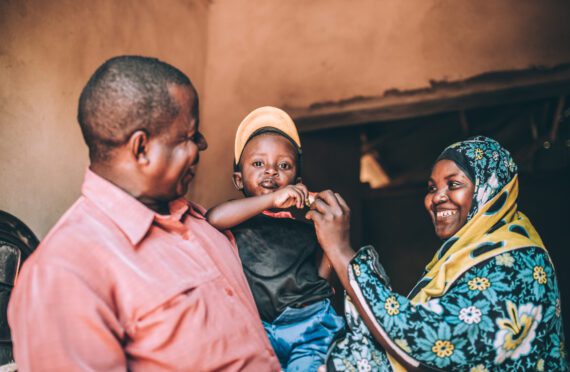By Marlysa D. Gamblin
Black History Month is a time to reflect and celebrate African-American leaders from our past and in our present. Many of these leaders have fought to end hunger and poverty in the United States and abroad. From famous trailblazers—including Marian Wright Edelman and A. Philip Randolph—to faith champions—including Iva Carruthers and Bishop Lawrence Reddick—this month is about lifting up leaders who have been committed to ending hunger by 2030, in all spheres, at all levels.
As we celebrate this year, we are reminded about the events that shaped 1968. This year marks the 50th anniversary of Martin Luther King Jr.’s assassination as well as the Poor People’s Campaign—a campaign organized by many black faith leaders to attain better jobs, homes, education, health care, and dignity for all low-income people, regardless of race, ethnicity or region. We know from research that decent jobs, affordable housing, good healthcare, and quality education are key to a household’s ability to rise above food-insecurity. It is commendable that 50 years ago, these leaders were committed to a vision that would afford every household and family in our country the ability to rise above hunger—the same vision that will help get us to our 2030 goal of ending hunger altogether.
With their hard work, they brought together thousands of low-income people from all racial backgrounds and regions across the country—from Appalachia, the South, Indian Country, and more—to rally against economic hardship. Despite the assassination of Dr. Martin Luther King Jr., the campaign’s leader, they persevered. Still, poverty remains a central American reality, and we must use this year to build on the work of 50 years ago to make sure that our current nation’s policy makers prioritize ending hunger.
This year, we face the question of how our country can end hunger and extreme poverty by 2030. It comes down to this: we need the continued leadership of faith leaders, as we did 50 years ago with the campaign. We continue to see today the contributions of Black leaders, at all levels, to ending poverty and hunger. This is especially crucial at this time when hunger levels have remained stagnant for many Americans and have even increased among some groups, including African-Americans (21.5 percent in 2016 to 22.5 percent in 2017).
To end hunger and extreme poverty in America, our federal policies need to make this goal a priority.
As we celebrate Black History Month, we encourage everyone to engage in continued prayer and advocacy. One resource that is a great contribution by black faith leaders committed to ending hunger is our newly released, “In Times Likes These … A Pan-African Christian Devotional for Public Policy Engagement” guide. This guide provides weekly prayers in accordance with key holidays and historical events, including the Poor People’s Campaign.
Every week during the month of February, Bread will be sharing prayer graphics in accordance with the guide to encourage people to activate their faith and honor the 50th anniversary of the Poor People’s Campaign. With these tools, we hope that people of faith will be encouraged to work harder to achieve our goal of ending hunger by 2030.
Stay tuned for a second blog post celebrating Black History Month and acknowledging how young Black leaders are doing their part to end hunger.
Marlysa D. Gamblin is a domestic adviser for policy and programs for specific populations at Bread for the World Institute.



